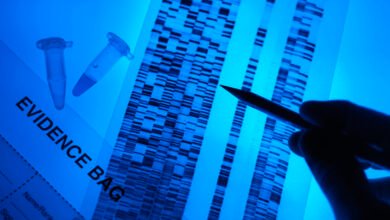DHS Secretly Collected US Citizen DNA for Years

▼ Summary
– CBP has been collecting DNA from US citizens, including minors as young as 4, and submitting it to the FBI’s CODIS crime database without congressional authorization.
– Government data shows nearly 2,000 US citizens, including an estimated 95 minors, had their DNA collected between 2020 and 2024, with some cases involving people never charged with a crime.
– Experts state this program operates outside legal bounds, allowing CBP broad discretion to collect genetic material for a database originally designed for convicted offenders.
– The scale of DHS contributions is significant, with roughly 2.6 million profiles added to CODIS since 2020, 97% of which were collected under civil authority.
– This expansion has reshaped CODIS into a repository for individuals detained on civil grounds, with projections suggesting DHS could account for one-third of the database by 2034.
Newly released government data reveals that Customs and Border Protection agents have been collecting DNA from US citizens, including minors, and submitting the samples to the FBI’s criminal database. This practice, which occurred without congressional authorization, raises significant legal and ethical questions about the scope of genetic surveillance. The information indicates that nearly 2,000 American citizens had their genetic profiles entered into the system between 2020 and 2024.
An analysis conducted by Georgetown Law’s Center on Privacy & Technology found that approximately 95 of these individuals were minors, some as young as fourteen. The records include numerous cases where travelers were never formally charged with a crime. In dozens of instances, the field designating the charges was left completely blank by the collecting officers. In other files, agents cited civil penalties as the reason for the DNA swab, a justification that appears to conflict with federal law, which typically reserves such collection for criminal arrests.
Experts suggest these findings indicate a program operating with minimal oversight, where CBP officers wield considerable discretion to gather genetic material from Americans. This information is then funneled into the FBI’s Combined DNA Index System (CODIS), a database originally created to aid investigations into violent crimes. Critics argue that once a person’s DNA is in this system, they could face lifelong heightened scrutiny from law enforcement agencies.
“Those spreadsheets tell a chilling story,” stated Stevie Glaberson, director of research and advocacy at Georgetown’s Center on Privacy & Technology. “They show DNA taken from people as young as 4 and as old as 93, and, as our new analysis found, they also show CBP flagrantly violating the law by taking DNA from citizens without justification.” The Department of Homeland Security, which oversees CBP, did not respond to requests for comment on these allegations.
Originally designed as a tool for tracking convicted offenders, CODIS has evolved into a vast repository under recent policy shifts and the previous administration’s immigration agenda. It now contains genetic profiles collected far outside the traditional criminal justice framework. Data released earlier this year confirmed that CBP and Immigration and Customs Enforcement have been systematically submitting cheek swabs from immigrants and, in many instances, US citizens.
The program’s expansion means that children at the border, families questioned in airports, and individuals held on civil grounds are now having their DNA added to the same system used for criminals. Previous reporting indicated that genetic material from minors as young as four and elderly individuals in their nineties has been entered into CODIS, often with little documentation explaining the circumstances of the collection.
The scale of this data accumulation is staggering. Researchers at Georgetown estimate that since 2020, the Department of Homeland Security has contributed approximately 2.6 million profiles to CODIS. This figure far exceeds earlier projections and represents a dramatic reshaping of the database’s composition. By the end of 2024, the detainee index within CODIS held over 2.3 million profiles; that number grew to more than 2.6 million by April 2025. A striking 97 percent of these samples were gathered under civil authority rather than criminal statutes. If current trends continue, projections based on DHS data suggest that profiles collected by Homeland Security could constitute one-third of the entire CODIS database by 2034.
(Source: Wired)




